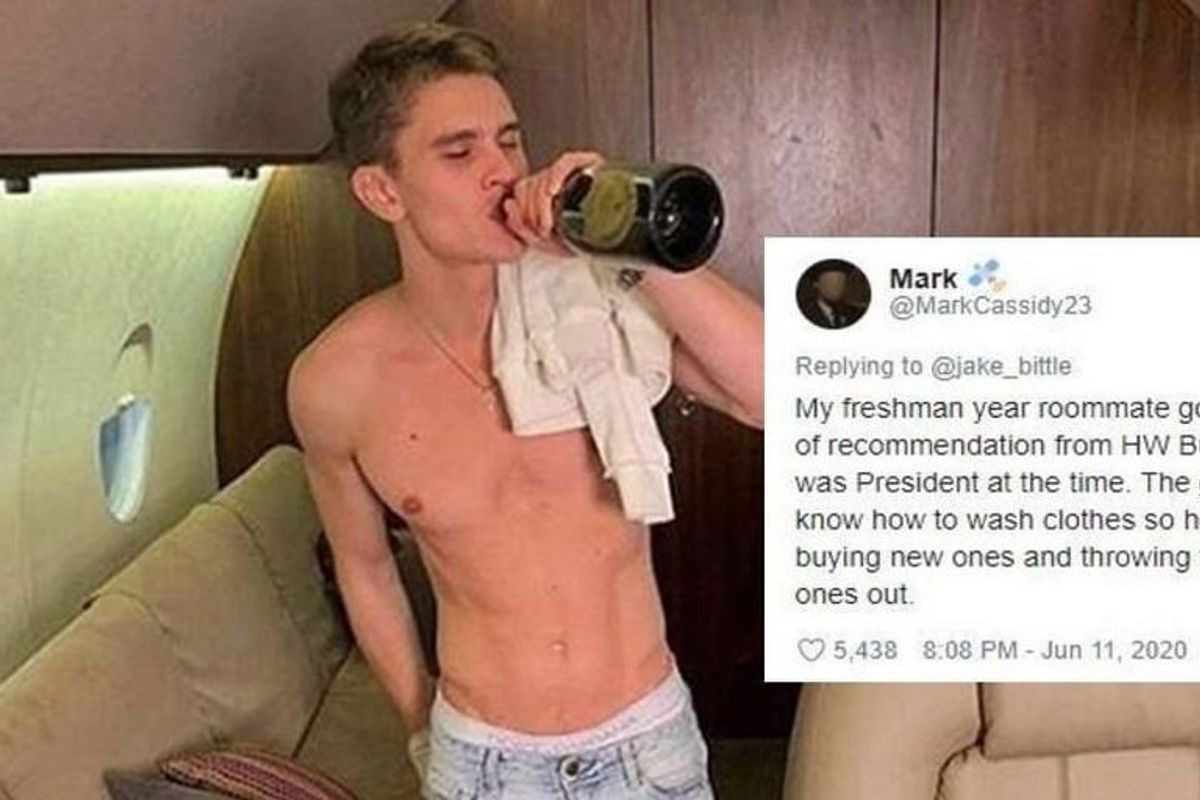People shared their experiences encountering insanely rich kids for the first time
"Her parents used to call her and check on her because she 'wasn't spending enough money.'"
Are they out of touch with reality or just living in a different one?
Most people grow up going to schools where people are of a similar social status. Lower-income people tend to grow up with people in the same situation and affluent people usually grow up around people who are rich as well. But things can change dramatically in college. People who are from completely different sides of the socioeconomic spectrum attend class together and sometimes wind up sharing the same dorm room.
One student can be there on a scholarship and have a part-time job to make ends meet. The other may be on a massive allowance from their parents who pay full tuition without batting an eye. What exacerbates the issue is that many people go through college dirt poor. If they have a job, it's often low-paying, they can't work many hours and they aren't old enough to have accumulated any wealth. According to the Lumina Foundation, a nonprofit based in Indianapolis dedicated to providing "opportunities for learning beyond high school" for all, 47% of today's college students don't have or rely on parental support, and of those students, one in four live below the poverty line.
The differences are stark. So stark that seeing one of your peers wasting other people's hard-earned money can be downright stupefying. It can also seem highly immoral for some to have so much and not appreciate it when others are struggling to get by.
College is also a time when people begin to learn about income inequality and why it exists.

In the summer of 2020, freelance journalist Jake Bittle started a fun conversation on Twitter where people shared stories of some of the insanely rich kids they knew in college. Many of the responses came from people who went to the University of Chicago.
Bittle's story started with seeing a girl open her laptop to reveal a ton of money in her bank account while they were taking a class on Marxism. The tweet inspired people to share stories of the insanely rich kids they met in college and how some of them were terribly wasteful with their money.
(Jake has since deleted his original tweet.)


One thing really becomes apparent when reading all of these Tweets: the severe lack of financial literacy among the college students in these anecdotes. According to EBSCO, over 40% of college students are "still not equipped with adequate financial literacy knowledge and skills." This also touches on the correlation between student debt and financial literacy. A 2024 study from Auburn University published by the Social Science Research Network (SSRN) notes that students with more than $100,000 in student debt especially lack "adequate financial understanding," exacerbating the student debt crisis.

No matter what side of the socioeconomic spectrum these students hail from, it's well known that schools do not take the time to educate students on real-life skills like taxes, banking, budgeting, etc. before they head out into the world. Even if a student's affluent family hasn't wised them up to how money works in the real world, imagine how much better off everyone would be if we were required to take financial literacy courses before we hit adulthood?
This article originally appeared five years ago.
- Rainn Wilson gave a commencement speech to rich kids — and he got very real with them. ›
- Economics Articles and News - Upworthy ›
- A story about two pairs of boots illustrates how rich people get richer in ways poor people can't ›
- 15 of the wildest things average folks have witnessed at uber-rich people events - Upworthy ›

